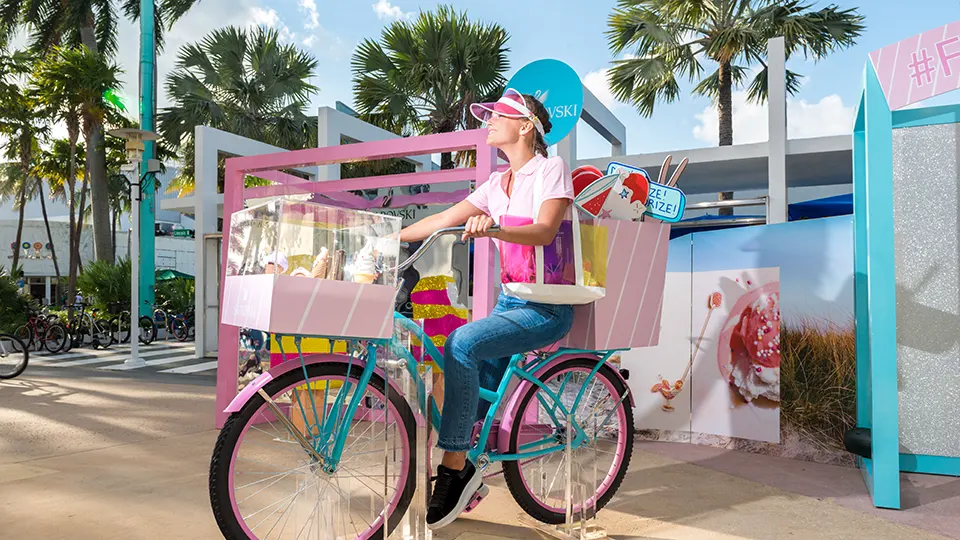It is a fact: we produce too much waste and pollution. So, what can an event planner do to reduce its event’s impact on the environment?
Events and trade shows have always been a great source of inspiration for business entrepreneurs and people who attend them. Thus, as event planners play a major role into events’ organization, we can assume that they directly or indirectly influence people’s consciousness.
Therefore, by promoting green into your event, you may influence attendees’ mind as you deliver an eco-friendly message. Implementing a green policy into your strategy will have a great impact on your brand image, will help you to save money and give your visitors a great lasting impression. Green can also be fun, incentive, creative and educational for all your attendees. Let’s see what you could do to become more eco-efficient.
ECO-FRIENDLY EVENT PLANNING

An eco-friendly event’s strategy starts during its organization. From setting the objectives to the D-Day, you may first implement an ethical way of working and communicate about it. You can take into account many points: waste management, power and water use, accommodation, transport, registration system, printing, promotion, catering…
You can firstly look at your former events and check energy, waste and catering figures and try to better adapt your needs. You may try to limit the use of paper, ink, plastic, packaging and so on. You can reduce carbon emission due to your business trips and favor numeric tools to communicate with your clients and providers.
As you want to communicate about your event, be sure to underline your eco-commitment during your meeting and to promote waste reduction, reuse and recycling. You can also plan some incentive and fun objectives for your attendees and reward them if the environmental footprint during the event decreases compared to the year before.
Nevertheless, remember to never force, judge or ostracize visitors who don’t 100% share your vision, but simply propose, encourage, facilitate, advise and be optimistic about getting green.
GREEN SERVICE PROVIDERS

The choice of a venue that respects an eco-friendly guideline can be part of your plan. This means a place where power, heating, A/C and water supplies are wisely used or not used at all if not necessary. You can also evaluate its proximity to hotels and airports and how easily it is served by public transportation.
A second solution is about waste management during the event, with for example a sorting system coupled with good signage. You can encourage attendees to reduce food and drink packaging use and limit non-recyclable materials such as plastic.
It can also concern the selection of service providers who care about their environmental footprint and who propose ethical practices. Much like materials, catering can be eco-oriented. Seasonal, sustainable and local food should permanently be favored as it reduces transportation impact and costs. You may offer vegetarian menu options, as well as organizing a compost system or a way to redistribute food excess to local associations.
ECO-EFFICIENT COMMUNICATION AND TECHNOLOGY
The goal is to use less paper in order to favor digital tools. Before the event, schedules, tickets and accommodation details can be sent by email or be available on your website and your social media. Registrations should be made online and you can implement a digital check-in system. Don’t hesitate to communicate about your eco-commitment and to encourage visitors to favor green-behavior.
You could also create booths and workshops to raise awareness among attendees to adapt their consumption habits. Booths and workshops can also be eco-friendly, using recycled items, designed with technological displays and low-consumption lighting…
ECO-CONSCIOUS ACTIVITIES

Either during a meeting or during teambuilding sessions, you can organize incentive workshops and activities that develop eco-consciousness. It can be directly linked to nature such as planting trees, or to a more sustainable diet through cooking activities. It can also concern donation of leftover supplies to local associations, or learning tips to reduce everyday environmental footprint.
Finally, you can create incentive objectives to follow during your event, reward the most eco-friendly visitors and invite them to share their experience on social media.
WHAT ABOUT GOING FURTHER?
Being eco-friendly doesn’t have to be a burden and doesn’t mean being radical. As we are consumers, we automatically produce waste. But you can offset this footprint by developing a more ethical way to act and to take into account the 4 “R”: Reduce, Reuse, Repair and Recycle.
You may encourage the use of digital displays at work or during events, but the energy they need to function and the ecological cost it demands to produce and recycle them create a bigger footprint on the environment than using paper. There are no best ecological ideas, only good and diverse ways to reduce your impact.
In the same manner, creating living green walls at the office and reducing the A/C-use can positively impact the environment, as well as riding a bike to go to work. Easy eco-solutions are endless!




